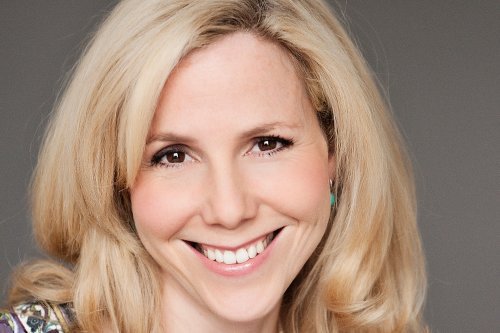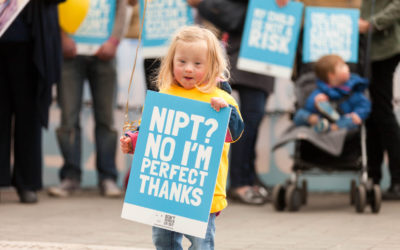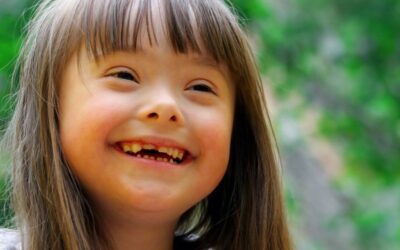2016 may go down as the year that people like our daughter Rosie become extinct. She is happy, healthy, and full of joy. Her emotional intelligence will likely be higher than most. Her IQ will likely be lower. For all this, she has every chance of leading a working, independent life. We’re still going to save for her wedding.
Rosie has Down’s Syndrome and, since having Rosie, I’ve realised that Down’s Syndrome in 2016, with all our advances in medical treatment and education, is absolutely nothing like what I or the vast majority of the general public have traditionally believed it to be.
Progress with this condition over the last 30 years has paralleled the rate of technological advancement. If you can imagine an organisation making decisions on their IT infrastructure based on their computer knowledge from the 1970s then you may get some sense of how we feel about its eradication being a government priority.
But this year, the UK’s National Screening Committee recommended that the new non-invasive genetic screening test (NIPT) become widely available through the NHS.
With existing tests in the UK resulting in a 92% termination rate, and with some countries already using NIPT delivering zero Down’s Syndrome births since its introduction, we know where this decision ends up.
We are now drawing a large circle around most of society and saying that those outside, if we can detect them early enough, would be best avoided.
There is a sincere sounding logic to the arguments for this. I’d probably even have agreed with them a few years ago. Until, that is, you find yourself outside of that circle. The specific issue in this case is that those outside the circle are a vulnerable group who haven’t been afforded a voice at all. The genetically superior are unilaterally making decisions that will eradicate the genetically inferior and that makes me very uncomfortable indeed.
Last night actress Sally Phillips aired her documentary on the ethics of this, featuring her son Ollie who has Down’s Syndrome. Phillips’ non-clinical anecdotes showed some brilliance, elegantly communicating the experiential side of life that parents across the world have been trying in vain to bring balance to the debate.
But these parents have a difficult job. It’s virtually impossible to make a point without those on the other side of the debate labelling your points as emotional rather than logical ones.
On the contrary, enlightened by first-hand experience of the condition, we marvel at the outdated beliefs underpinning the arguments coming the other way. But those arguments come from positions of legitimacy and influence that often make them difficult to compete with.
The debate has been repositioned around freedom of choice and provision of information. The inference, therefore, is that those of us on the other side of the debate are promoting ignorance and restriction of choice which isn’t true.
What is true, is that when you provide absolute clarity to expectant mothers on one hand, whilst allowing ignorance to prevail on the other, the outcome is guaranteed because the game is rigged one-way.
They often don’t know that life expectancy has skyrocketed from around 12 in the 1970’s to a similar range of a typical adult. Don’t know that we know how to teach those with Down’s Syndrome, meaning they are growing up to become working, married, healthy, independent members of society. Don’t know that they are statistically much happier than the average person and that they can drive cars, run businesses, become public speakers and obtain university degrees.
They don’t know that 99% of individuals with Down’s Syndrome and their families say that they are happier for having the condition in their lives.
The most astonishing part of last night’s documentary for me was the part which featured a senior doctor from the UK’s screening development programme wilfully distance herself from the probable effect of what she is working on.
It made me wonder: “If everyone just focuses on their own little piece of the jigsaw, convinced of the benefits of their work, but the entire jigsaw delivers what I believe could be one of the most ethically questionable effects in human history then who is taking responsibility for that right now?”
“No-one.” would appear to be the answer.
I believe that diversity is important to the fabric of our society. Exposure to diversity helps us to become more accepting, empathetic, humane humans. Not narcissistic clones with our own rules of natural selection. If we’re terminating on IQ today, then what is next?
Sally Phillips recently said:
“If you could say to somebody, you’re going to have a child who will magically bring about social cohesion, will bring joy and encourage all the people around him or her not to take life too seriously, who will enjoy simple things in life, who will literally do a dance if there is ice cream in the freezer, who is able to enjoy life’, that’s a whole new value system, isn’t it?”
Imagine that was your diagnosis. Along with “Congratulations.”
“A World Without Down’s Syndrome“



